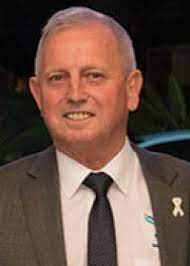
The NSW government is withholding more than half a billion dollars a year in waste levies collected from local councils, a NSW parliamentary committee has heard.

The levy is also costing the state government money because it’s incentivising northern NSW councils to send their landfill across the border to Queensland, according to evidence presented to a NSW Standing Committee investigating the sustainability of local government.
The United Services Union says instead of the levy being used to help councils manage waste more sustainably, it’s being hoarded in state government coffers.
The union says the government collects around $750 million a year in waste levies from councils, but only invests $250 million of that back into waste management initiatives and pockets the rest.
“The NSW Government is withholding money collected from local councils and their communities to the tune of $500 million a year through the waste levy,” General Secretary Graeme Kelly said ahead of his appearance before the committee on Friday.
NSW losing out to Queensland
The USU says the levy collected would be significantly more if funds collected by the state government were reinvested into new local and regional landfill sites, particularly in northern NSW where most councils are now sending landfill waste over the border to Queensland.
“Waste being transported to Queensland is at a cost to ratepayers and results in no waste levy being collected in some regions,” Mr Kelly says.
“The waste levy is supposed to be an environmental measure, but it’s become a perverse incentive for some councils to dodge the levy by dumping waste in Queensland.
“Most of the councils on the north coast from Coffs Harbour to the Tweed Border use contractors who are technically robbing NSW councils and taxpayers by not paying the levy.”
Broader financial crisis
The USU argues the waste levy is just one symptom of the broader financial crisis facing local government in NSW and is also calling for an end to rate pegging, echoing concerns raised by Local Government Professionals NSW.
The USU wants to see the rate peg abolished as part of a broader reform package to secure the long-term financial sustainability of the local government sector.
“Scrapping rate pegging won’t solve all the problems facing councils overnight, but it’s an essential first step,” Mr Kelly said.
The United Services Union represented workers in local government and represents every town and community in the state and every job within local government up to and including General Manager.
Read the full USU submission here.
Comment below to have your say on this story.
If you have a news story or tip-off, get in touch at editorial@governmentnews.com.au.
Sign up to the Government News newsletter
Another handicap to NSW businesses overpaying to get rid of waste
The NSW Government is not only betraying councils but the people in regional towns seeking gainful employment. Those hoarded funds serve no purpose and that needs to change.
What should be happening with that money is for regional towns that are suffering from a lack of job prospects, to embrace the recycling industry and establish smaller, local recycling processing plants that employ local people.
This idea of sending large quantities of bulk recyclable waste to other states, defeats the purpose of sustainable recycling. It needs to be processed locally to cut transport costs and cut emissions.
The state of NSW is littered with aging, abandoned government bulk storage facilities. These cavernous edifices now sit idle on the sides of rail lines empty and decommissioned. They are a waste of a perfectly good opportunity despite the fact they are no longer suitable for grain or food storage.
That hoarded money could be used to reopen and upgrade those facilities and use them as local recycling processing centres, creating industries and jobs where there were none before.
We need to start adapting to the new reality which is climate change and stop transporting raw materials hundreds of kilometres to be processed, when that processing could be done right here in this state in our regional towns.